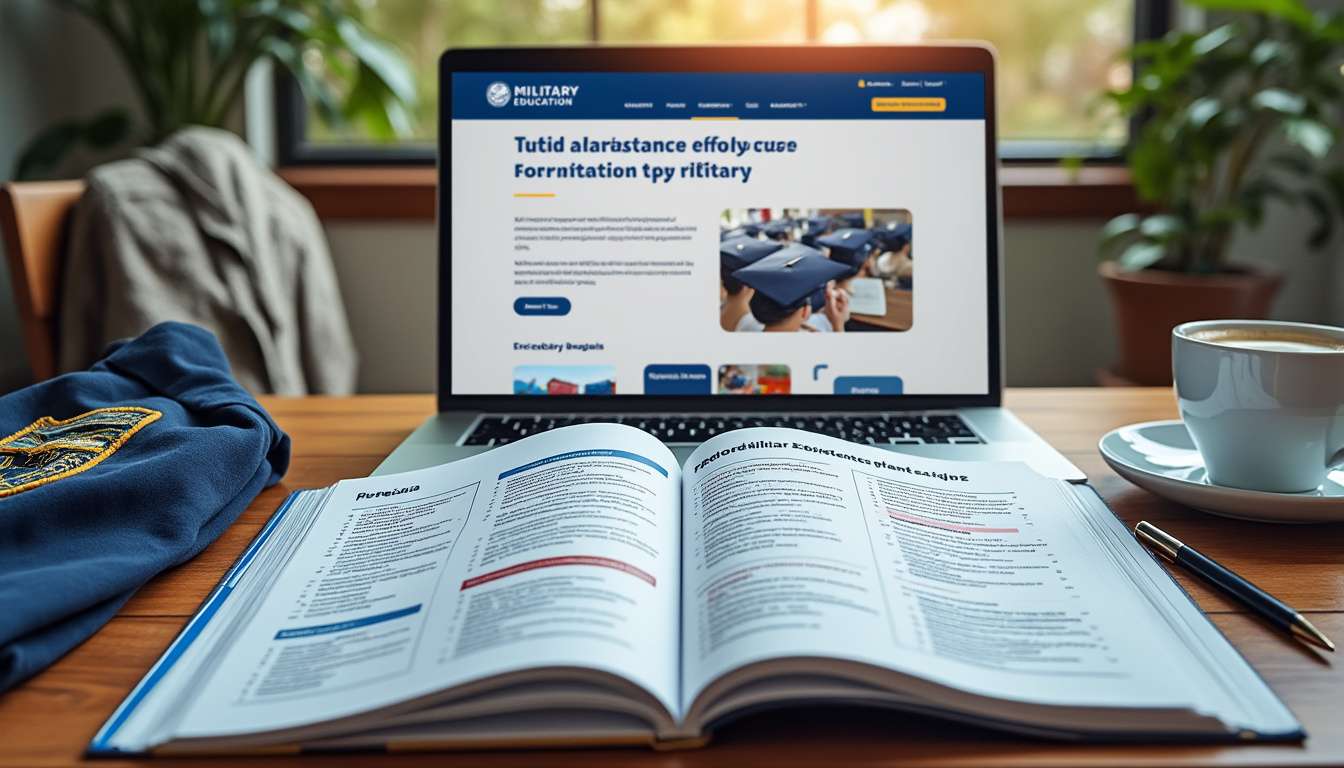Military service members in 2025 continue to face evolving educational opportunities, with Military Tuition Assistance (TA) standing out as a crucial financial resource. TA offers active-duty personnel across all branches—including the Army, Navy, Air Force, Marine Corps, Space Force, and Coast Guard—an opportunity to pursue higher education without tapping into their GI Bill entitlement. This benefit not only covers tuition but also provides a pathway for service members striving to balance their military responsibilities and academic advancement.
Navigating the various branches’ eligibility rules, application procedures, and funding limits can be complex. This guide breaks down the essentials of Military Tuition Assistance, how it complements other benefits like the GI Bill and Tuition Assistance Top-Up, and the upcoming changes impacting the Army’s program. Active service members and reservists will find actionable insights to maximize these benefits as part of their educational journey.
Understanding Military Tuition Assistance Eligibility and Coverage
Each military branch offers tailored TA benefits, making it essential to grasp specific eligibility criteria and funding caps. Generally, active-duty members and reserve personnel on active-duty status qualify, with annual limits typically set at $4,500 per fiscal year.
- Air Force Tuition Assistance covers 100% of tuition fees up to $250 per semester hour and $166 per quarter hour, applicable to active-duty and reserve forces.
- Army TAsimilarly funds full tuition and fees, capping at 18 semester hours yearly, available to active-duty, Army National Guard on active duty, and Army Reserve.
- Navy College Programand Marine Corps Tuition Assistance both provide 100% tuition coverage, with the latter limited to active-duty personnel only.
- Coast Guard Tuition Assistancesupports active-duty and reserves in active duty status under similar terms.
- The Space Forcefollows suit, offering up to $250 per semester hour within the fiscal year cap for its active-duty members.
These benefits are typically paid directly to education providers, allowing service members to focus on their studies. However, it’s vital to stay aware of each branch’s specific application process to leverage funding seamlessly.
What Expenses Does Military Tuition Assistance Cover?
Military Tuition Assistance benefits extend beyond basic tuition to support a variety of educational expenses:
- Tuition costs for undergraduate, graduate, vocational, licensure, certificate, and language courses
- Course-specific fees, including lab or online course fees
- Options for both in-person and online classes to accommodate diverse learning styles
However, applicants should note that items like books, course materials, transportation, room and board, and flight training fees are excluded from TA coverage. These often require separate financial planning or aid through other military or civilian programs.
Military Tuition Assistance is not without its conditions. Service members must adhere to program policies to maintain eligibility and avoid financial liabilities.
- TA funds are disallowed if the student drops the class without exceptions, barring cases like illness, military transfer, or mission requirements.
- Failing a course after receiving TA payments may necessitate a repayment of those funds.
- TA cannot cover repeated courses, emphasizing the importance of academic planning and commitment.
- Active-duty members are encouraged to coordinate closely with their education offices to ensure compliance and avoid penalties.
The U.S. Army’s announcement in April 2024 regarding potential cuts to its Tuition Assistance and Credentialing Assistance programs highlights the importance of staying informed through official military communication channels such as Military OneSource.
How to Apply for Tuition Assistance in 2025
Applying for Military Tuition Assistance varies by branch, each requiring specific forms and submission protocols. Service members should consult their branch’s official resources for the exact process, including resources like:
- Understanding College Tuition and Fees for better financial planning
- Branch-specific portals such as GoArmyEd, Navy College Program, and the Air Force Tuition Assistance website
- Additional support through programs like MyCAA for eligible military spouses
Utilizing these platforms efficiently can streamline the TA application, ensuring funds are approved and disbursed timely.
Combining Tuition Assistance with Other Military Education Benefits
Military Tuition Assistance can be effectively paired with other military education benefits to maximize funding and opportunity:
- GI Bill: Many service members use TA for active-duty education and save GI Bill benefits for post-service schooling.
- Tuition Assistance Top-Up: Covers higher-cost courses by supplementing TA funds without tapping into GI Bill monthly housing allowances.
- Yellow Ribbon Program: Helps cover out-of-state tuition or private school costs that exceed GI Bill limits, particularly for veterans.
- Defense Activity for Non-Traditional Education Support (DANTES): Offers additional funding and educational resources for distance learning.
- Programs like Military OneSource provide counseling to navigate financial aid, scholarships, and grant opportunities.
Service members interested in debt-free education can explore comprehensive strategies combining employer tuition assistance, civilian scholarships, and military programs highlighted in our guide on Debt-Free Degree Achievement.
Additional Resources and Scholarship Options for Military Families
Beyond TA, various scholarships and grants are available to service members, veterans, and their families seeking educational funding. Military-affiliated individuals should consult resources such as:
- Scholarships for Veterans offering merit and need-based awards
- Scholarships for Trade Schools supporting specialized vocational training
- Employer Tuition Assistance Programs for military personnel transitioning to civilian careers
- State-specific opportunities such as Florida Attorney Scholarships
Proactively combining these with TA and GI Bill provisions can create a robust financial foundation for educational advancement.


